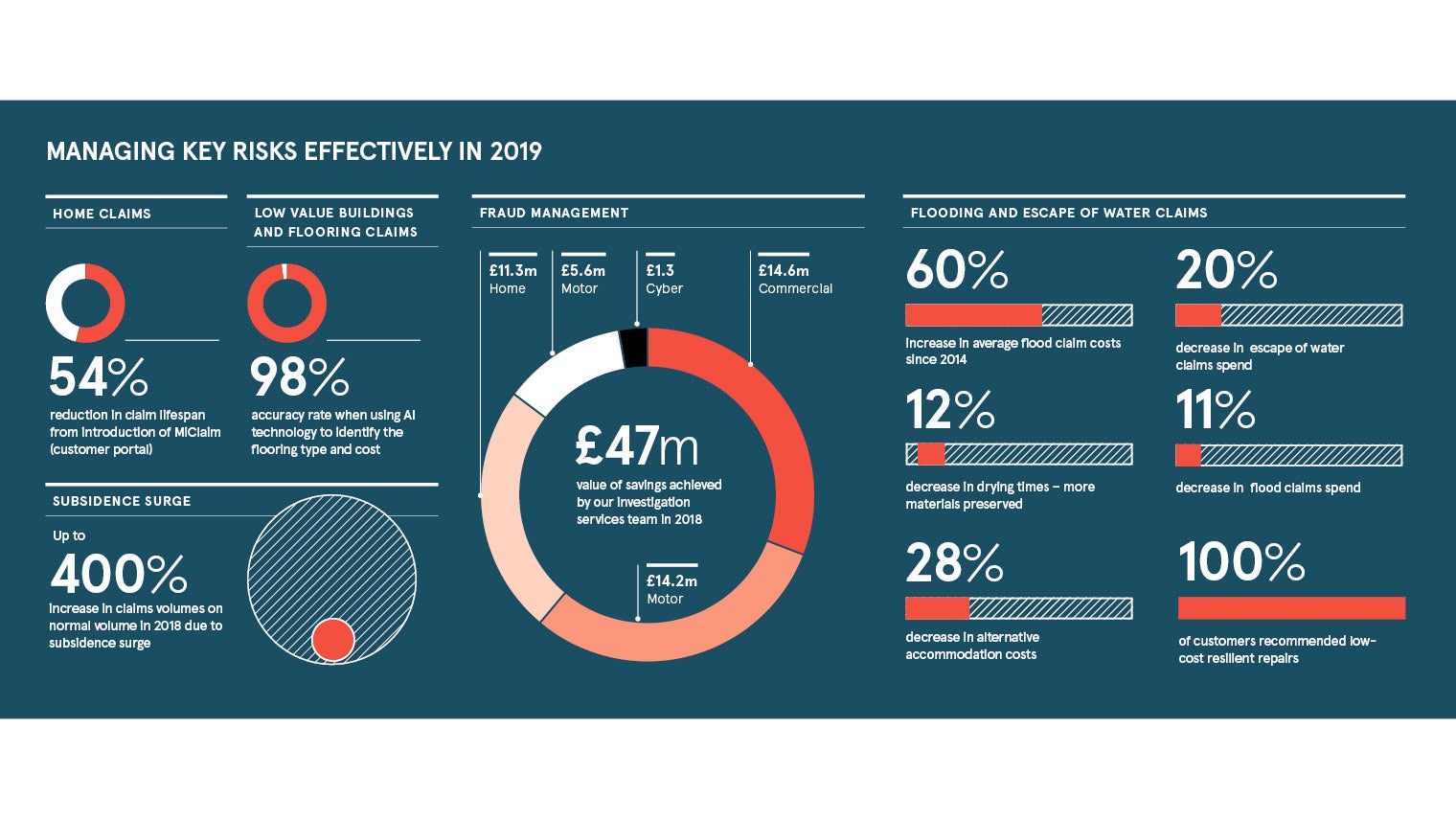Cyber-risks may have been around for many years, but they remain a constant danger for firms of all sizes with ransomware, phishing, data loss and hacking having the power to bring operations to a standstill.
“Cyber-related business challenges have grown considerably over the past decade,” says Stewart Steel, chief executive of Sedgwick UK, a leading global provider of technology-enabled claims and productivity management solutions. “It’s clearly something that’s here to stay, as many major businesses are suffering from repeated cyberattacks on practically a daily basis.”
Complex supply chains, the impact of Brexit and climate change are requiring companies to adopt the most effective solutions to mitigate and reduce risk, with having the right management team in place to combat these challenges quickly and effectively being vital.
It’s more important than ever to make sure that larger organisations have a talented risk management team in the business, which are able to not just moderate risks, but also ensure there is a comprehensive plan in place to deal with the immediate aftermath of loss.
“Beyond the internal resources, a trusted global broker who is able to explain the risks and challenges that are likely to be faced in certain territories is key as they will likely have more knowledge in this area than you, as the policyholder, might,” says Mr Steel.
By nominating loss adjusters to global programmes as early as possible and allowing them to work with the risk management team to plan loss, relationships can be built that ensure if loss happens a robust business continuity programme can be implemented.
Mr Steel believes that to prepare for threats around reputational risk, alongside enterprise risk management, it’s important to line up other talented partners who have global penetrations, including a PR firm, which may prove vital around cyber data-breach risks.
“A competent law firm is usually required because fundamentally there’s often a legal aspect to the possibility of recovering outlays from another party,” adds Mr Steel.
Artificial intelligence (AI) and machine-learning solutions, too, are beginning to speed up the claims process for policyholders, and help them to self-serve and handle their claims at a time that suits them, rather than having to wait until the various insurance and supplier offices are open.
Being able to take cost out and reduce unnecessary customer service costs for insurance companies would, in turn, have a beneficial effect on the premiums the policyholders pay. Perhaps most importantly for businesses, the power of AI to process claims quickly will enable them to move on immediately from the impact of a risk that damaged the firm.
Thanks to our extensive global network, we have at our fingertips practically all the expertise that any global corporate would want or need when facing pressing business risks
“If you look at the way many insurance companies are set up, quite a few are already using AI to handle claims. A few of the insurers we have dealt with have said claims of less than £2,500 may soon go through the claims process with no human intervention at all. From a supplier perspective, we are building processes and systems that mirror and match the AI process,” says Mr Steel.
It’s getting more difficult for insurers to keep pace with the rate of digitalisation, due to the significant cost involved and lack of adequately skilled technology professionals.
“There are some smaller insurers that are already considering either getting out of the market completely or looking towards companies like Sedgwick to offer a faster better, slicker, more customer-focused experience to enable them to grow in the sector, which otherwise would be risky for them to do with their own capital,” says Mr Steel.
As the world’s largest loss adjusting and claims management company, Sedgwick’s 21,000 staff in 65 countries are well placed to offer their technical expertise and vast practical experience to benefit their clients at every stage of the risk management process.
Sedgwick has been involved in dealing with the majority of major global catastrophes, allowing them to bring a considerable amount of post-loss expertise to help organisations plan for the worst-case scenario.

“Within the Sedgwick organisation we have a forensic accountancy business, which is beneficial if you’re looking at mitigating losses from interruption risk that may flow from outside your business and involve, for example, a supplier,” says Mr Steel.
Emerging risks, including extreme weather-related problems and the rise of terrorism, will continue to challenge how many global businesses operate. Even moderate weather events may require preparation to ensure there are no issues in continually operating.
“In this situation it could just be something as simple as getting your senior management together and considering what could happen in the worse circumstances, and then creating what we call a ‘grab bag’,” says Mr Steel.
A grab bag should hold all the information that is needed to get out of the office as quickly as possible and then put steps in place to start the process of recovering the business, including preparing back-up facilities, so the company can still provide a fundamental service for customers.
Forward-thinking businesses need to be considering how they would manage complex situations that require skills and expertise not available in their own company.
“Thanks to our extensive global network, we have at our fingertips practically all the expertise that any global corporate would want or need when facing pressing business risks,” Mr Steel concludes.
For more information please visit www.sedgwick.com/uk

